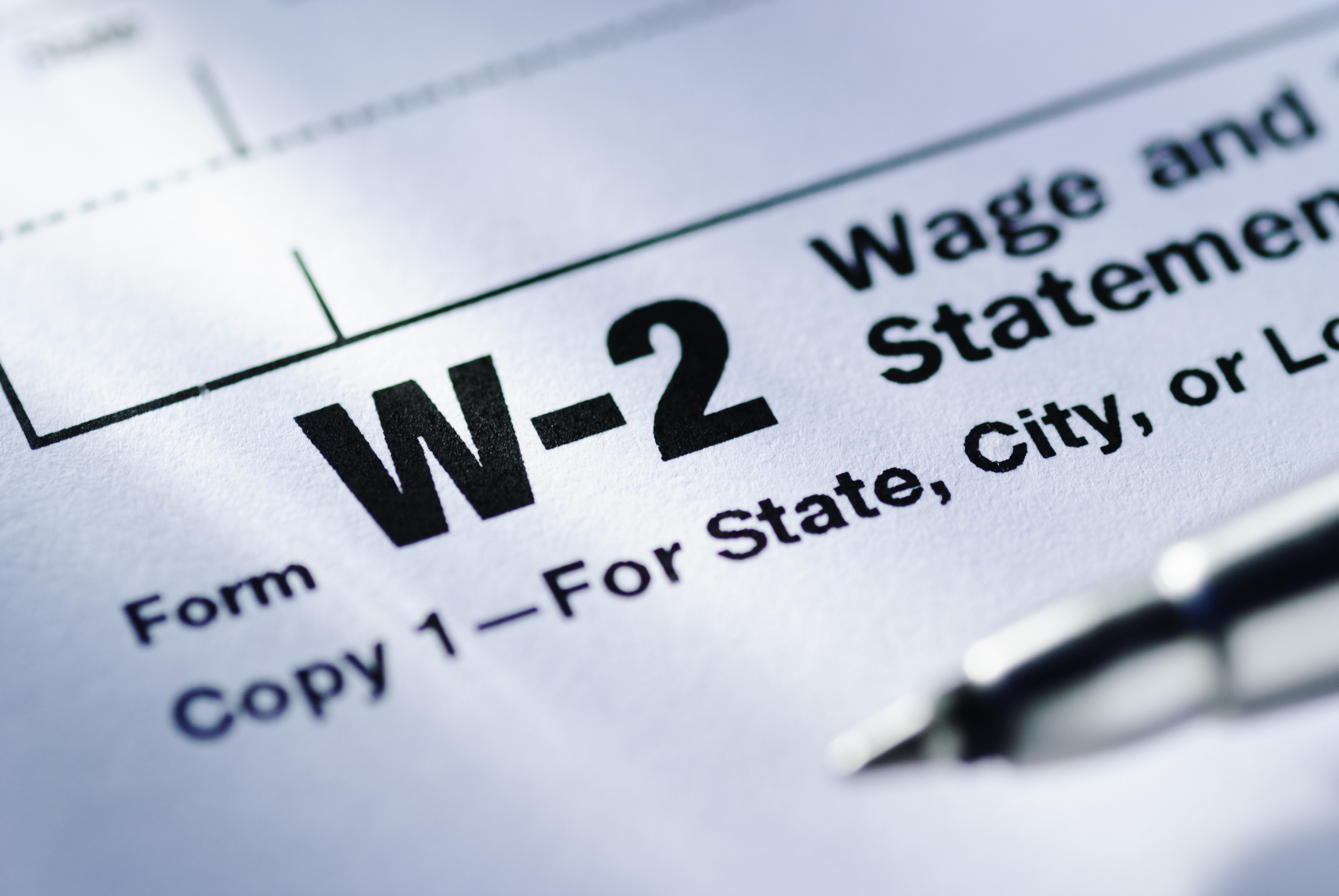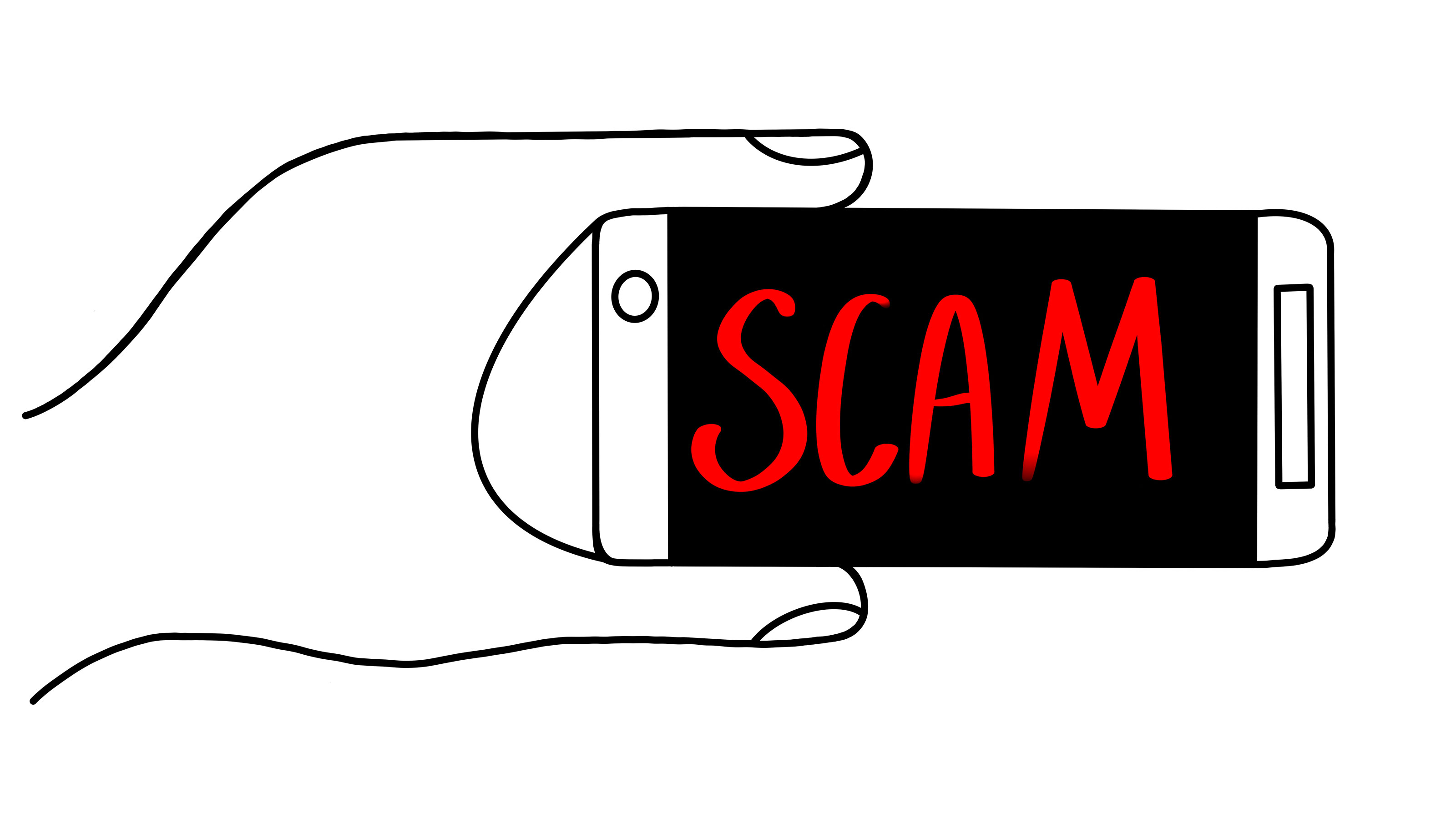5 Ways to Guard Against Tax Fraud
Take these steps to protect your identity during tax season.

Profit and prosper with the best of Kiplinger's advice on investing, taxes, retirement, personal finance and much more. Delivered daily. Enter your email in the box and click Sign Me Up.
You are now subscribed
Your newsletter sign-up was successful
Want to add more newsletters?

Delivered daily
Kiplinger Today
Profit and prosper with the best of Kiplinger's advice on investing, taxes, retirement, personal finance and much more delivered daily. Smart money moves start here.

Sent five days a week
Kiplinger A Step Ahead
Get practical help to make better financial decisions in your everyday life, from spending to savings on top deals.

Delivered daily
Kiplinger Closing Bell
Get today's biggest financial and investing headlines delivered to your inbox every day the U.S. stock market is open.

Sent twice a week
Kiplinger Adviser Intel
Financial pros across the country share best practices and fresh tactics to preserve and grow your wealth.

Delivered weekly
Kiplinger Tax Tips
Trim your federal and state tax bills with practical tax-planning and tax-cutting strategies.

Sent twice a week
Kiplinger Retirement Tips
Your twice-a-week guide to planning and enjoying a financially secure and richly rewarding retirement

Sent bimonthly.
Kiplinger Adviser Angle
Insights for advisers, wealth managers and other financial professionals.

Sent twice a week
Kiplinger Investing Weekly
Your twice-a-week roundup of promising stocks, funds, companies and industries you should consider, ones you should avoid, and why.

Sent weekly for six weeks
Kiplinger Invest for Retirement
Your step-by-step six-part series on how to invest for retirement, from devising a successful strategy to exactly which investments to choose.
It’s tax season, so you’re probably thinking about how big your refund will be, or how much you’ll owe the IRS. You should also be thinking about protecting your identity because thieves are looking for ways to steal it at tax time.
DOWNLOAD: The Kip Tips iPad App
Tax- and wage-related fraud topped the list of identity theft complaints received by the Federal Trade Commission in 2011, according to a report released February 28 (see the report). Tax-related identity theft is when crooks get someone else's Social Security number then use it to fraudulently file a tax return to claim a refund, says Adam Levin, founder and chairman of Identity Theft 911.
From just $107.88 $24.99 for Kiplinger Personal Finance
Become a smarter, better informed investor. Subscribe from just $107.88 $24.99, plus get up to 4 Special Issues

Sign up for Kiplinger’s Free Newsletters
Profit and prosper with the best of expert advice on investing, taxes, retirement, personal finance and more - straight to your e-mail.
Profit and prosper with the best of expert advice - straight to your e-mail.
Unfortunately, there are plenty of ways for thieves to get your Social Security number (see the 10 Riskiest Places to Give Your Social Security Number). However, there are steps you can take to lower your risk of becoming a victim of tax fraud and identity theft.
Monitor your mailbox. Make sure you received all the W-2, 1099 and other tax forms you were expecting to get. If you failed to receive some, contact the company or financial institution that was supposed to send them to find out if and when they were mailed. If you suspect that any of these forms were stolen from your mailbox, contact the IRS Identity Protection Specialized Unit at 800-908-4490. Levin also suggests calling your insurance company or financial institution to see if it offers identity theft protection and resolution services. If so, you'll have an advocate to help you with paperwork and resolve the problem.
Also, if you file your tax return by mail, use certified mail from the U.S. Postal Service to confirm that your return was received. And opt for direct deposit of tax refunds to avoid lost or stolen checks. "It can be a real, time-consuming pain to straighten things out if an ID thief does steal your refund," Kiplinger's editorial director and tax expert Kevin McCormally said in a recent tax chat. "The best way to make sure that doesn’t happen is to NOT have a refund coming in the first place." To do so, use our tax withholding calculator to find out how many allowances you should be claiming on the W-4 form filed with your employer so you can get your money when you earn it -- not in a refund next spring.
Store sensitive information in a secure place. Store paper tax forms in a locked home safe or safe-deposit box. Electronic forms should be stored on a password-protected or encrypted external drive or disk, Levin says. Use strong passwords that include upper and lowercase characters, numbers and symbols such as *, ! and & (see Protect Your Online Privacy With Unique Passwords). Never store tax files or any personal information on a cloud or Internet drive. And use a wiping application before getting rid of old computers that contain past tax information.
Ignore e-mails from the IRS. That’s because they’re probably fake. The IRS doesn’t communicate or request personal information by e-mail. Forward all suspect e-mails to phishing@irs.gov.
Be picky about your preparer. Levin says that many fraud rings front as tax-preparation companies and may offer to review returns for inaccuracies, but they can steal your information and redirect your refund. Also be wary of tax services that promise a bigger or faster refund. Verify the status of a preparer's license with the Better Business Bureau and IRS Office of Professional Responsibility. E-mail the IRS at opr@irs.gov with the full name of the individual or company and the address. Before handing over personal information, ask the tax preparer how your information will be stored and what his or her privacy policy is. This will help you feel more secure and will alert a less-than-reputable preparer that you're on the ball. Most importantly, scrutinize your prepared return and don’t sign it if it is incomplete or if the preparer has failed to sign it (paid preparers are required to sign your return and complete all preparer sections requesting their ID number).
Read the fine print. If you plan to file your tax return electronically, read the service’s privacy and security policy first. Find out when personal identifiable information will be destroyed and whether it can be shared with third parties. The IRS Free File program is a secure way to file your return online and is available to taxpayers with an adjusted gross income of $57,000 or less.
Get 100 of our top money-saving tips by downloading the new iPad app or purchasing the PDF version.
Profit and prosper with the best of Kiplinger's advice on investing, taxes, retirement, personal finance and much more. Delivered daily. Enter your email in the box and click Sign Me Up.

Award-winning journalist, speaker, family finance expert, and author of Mom and Dad, We Need to Talk.
Cameron Huddleston wrote the daily "Kip Tips" column for Kiplinger.com. She joined Kiplinger in 2001 after graduating from American University with an MA in economic journalism.
-
 How Much It Costs to Host a Super Bowl Party in 2026
How Much It Costs to Host a Super Bowl Party in 2026Hosting a Super Bowl party in 2026 could cost you. Here's a breakdown of food, drink and entertainment costs — plus ways to save.
-
 3 Reasons to Use a 5-Year CD As You Approach Retirement
3 Reasons to Use a 5-Year CD As You Approach RetirementA five-year CD can help you reach other milestones as you approach retirement.
-
 Your Adult Kids Are Doing Fine. Is It Time To Spend Some of Their Inheritance?
Your Adult Kids Are Doing Fine. Is It Time To Spend Some of Their Inheritance?If your kids are successful, do they need an inheritance? Ask yourself these four questions before passing down another dollar.
-
 Holiday Tax Scams 2025: 'Tis the Season to be Wary
Holiday Tax Scams 2025: 'Tis the Season to be WaryTax Scams Navigating tax tricks of the holiday season may be daunting, but don't let that destroy your festive spirit
-
 How to Guard Against the New Generation of Fraud and Identity Theft
How to Guard Against the New Generation of Fraud and Identity TheftIdentity Theft Fraud and identity theft are getting more sophisticated and harder to spot. Stay ahead of the scammers with our advice.
-
 Tax Scam: IRS Warns Taxpayers Against Filing False W-2 Info
Tax Scam: IRS Warns Taxpayers Against Filing False W-2 InfoScams A new tax scam on social media advises lying on your W-2 to falsely claim credits and bigger refunds.
-
 PODCAST: National Taxpayer Advocate Erin M. Collins Wants to Help
PODCAST: National Taxpayer Advocate Erin M. Collins Wants to HelpFinancial Planning Your tax dollars are at work funding a government bureau to help you deal with the IRS. Strange but true! Also, the price of Amazon is going up.
-
 Con Artists Target People Who Owe The IRS Money
Con Artists Target People Who Owe The IRS MoneyScams In one scheme, thieves will offer to "help" you pay back taxes, only to leave you on the hook for expensive fees in addition to the taxes.
-
 Tax Refund Scam Targets College Students and Staff
Tax Refund Scam Targets College Students and StaffScams The IRS says there's a new phishing scam aimed at people with email addresses ending in ".edu."
-
 PODCAST: Taxes on Retirees — What’s New
PODCAST: Taxes on Retirees — What’s NewBudgeting In this episode of Your Money's Worth, senior tax editor Rocky Mengle talks about the latest update of the Kiplinger Retiree Tax Map. Will states with declining revenues make life harder on retirees? Also, the Biden stimulus plan and the hazards of patent scams.
-
 Watch Out for Stimulus Check Texting Scam
Watch Out for Stimulus Check Texting ScamScams Scammers are sending text messages that trick people into disclosing bank account information to get a $1,200 stimulus check.